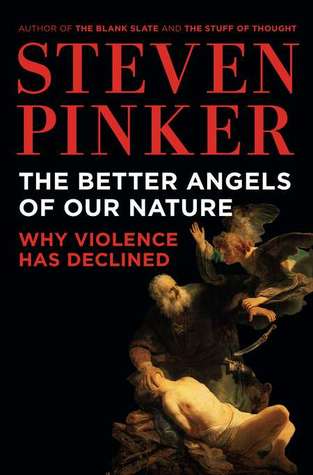Scientific Consensus is the Spanking is Bad
At least since Dr. Spock, child-care gurus have increasingly advised against spanking.175 Today every pediatric and psychological association opposes the practice, though not always in language as clear as the title of a recent article by Murray Straus: “Children Should Never, Ever, Be Spanked No Matter What the Circumstances.”176 The expert opinion recommends against spanking for three reasons. One is that spanking has harmful side effects down the line, including aggression, delinquency, a deficit in empathy, and depression. The cause-and-effect theory, in which spanking teaches children that violence is a way to solve problems, is debatable. Equally likely explanations for the correlation between spanking and violence are that innately violent parents have innately violent children, and that cultures and neighborhoods that tolerate spanking also tolerate other kinds of violence.177 The second reason not to spank a child is that spanking is not particularly effective in reducing misbehavior compared to explaining the infraction to the child and using nonviolent measures like scolding and time-outs. Pain and humiliation distract children from pondering what they did wrong, and if the only reason they have to behave is to avoid these penalties, then as soon as Mom’s and Dad’s backs are turned they can be as naughty as they like. But perhaps the most compelling reason to avoid spanking is symbolic. Here is Straus’s third reason why children should never, ever be spanked: “Spanking contradicts the ideal of nonviolence in the family and society.”
Notes:
Folksonomies: science parenting spanking
Taxonomies:
/family and parenting/children (0.575829)
/society/sex (0.206101)
/health and fitness/disorders/mental disorder/depression (0.167468)
Keywords:
spanking (0.919196 (negative:-0.780921)), spanking teaches (0.888890 (negative:-0.633885)), humiliation distract children (0.722678 (negative:-0.893823)), innately violent parents (0.704431 (negative:-0.800263)), innately violent children (0.699833 (negative:-0.800263)), Murray Straus (0.625011 (neutral:0.000000)), child-care gurus (0.620824 (neutral:0.000000)), compelling reason (0.606949 (negative:-0.663007)), Dr. Spock (0.599561 (negative:-0.620981)), Scientific Consensus (0.592268 (negative:-0.620981)), cause-and-effect theory (0.590422 (negative:-0.446890)), psychological association (0.584647 (neutral:0.000000)), recent article (0.583597 (neutral:0.000000)), expert opinion (0.580677 (neutral:0.000000)), harmful side effects (0.576325 (negative:-0.771044)), nonviolent measures (0.569166 (negative:-0.910178)), Dad’s backs (0.568918 (negative:-0.760841)), violence (0.470027 (negative:-0.717074)), scolding (0.451058 (negative:-0.910178)), misbehavior (0.447256 (negative:-0.910178)), infraction (0.447158 (negative:-0.910178)), empathy (0.445447 (negative:-0.519910)), delinquency (0.441446 (negative:-0.477219)), penalties (0.438211 (negative:-0.842388)), aggression (0.437834 (negative:-0.554111)), nonviolence (0.436427 (neutral:0.000000)), correlation (0.436018 (negative:-0.800263)), deficit (0.435788 (negative:-0.519910)), neighborhoods (0.435210 (negative:-0.910178)), reasons (0.432472 (neutral:0.000000))
Entities:
Murray Straus:Person (0.823169 (negative:-0.534884)), Dr. Spock:Person (0.464071 (negative:-0.620981))
Concepts:
Domestic violence (0.979321): dbpedia | freebase | opencyc
Psychology (0.749483): dbpedia | freebase | opencyc
Corporal punishment (0.715925): dbpedia | freebase
Spanking (0.709675): dbpedia | freebase | opencyc
Scientific method (0.678197): dbpedia | freebase





